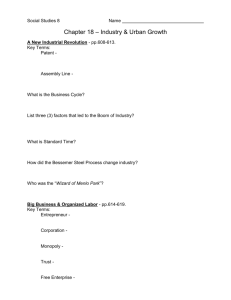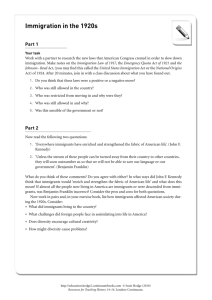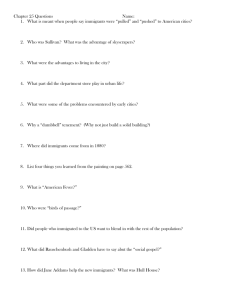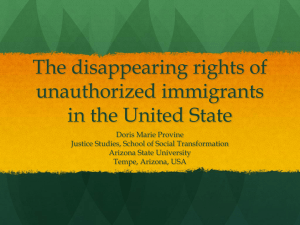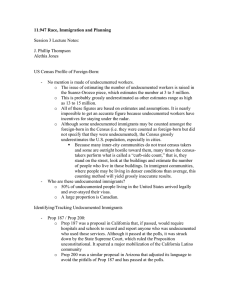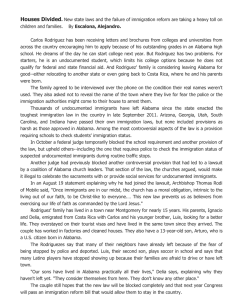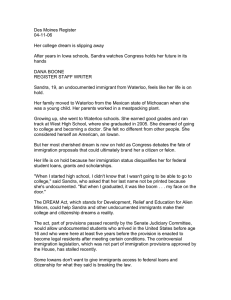A Home We Build Together - National Federation of Asian American
advertisement
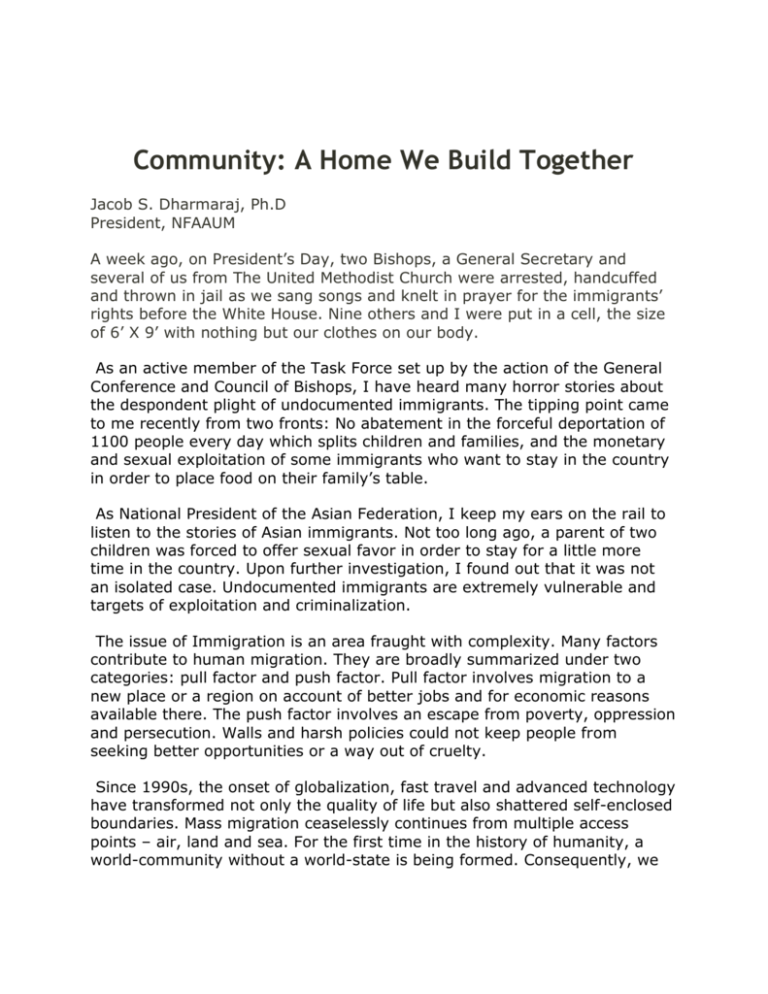
Community: A Home We Build Together Jacob S. Dharmaraj, Ph.D President, NFAAUM A week ago, on President’s Day, two Bishops, a General Secretary and several of us from The United Methodist Church were arrested, handcuffed and thrown in jail as we sang songs and knelt in prayer for the immigrants’ rights before the White House. Nine others and I were put in a cell, the size of 6’ X 9’ with nothing but our clothes on our body. As an active member of the Task Force set up by the action of the General Conference and Council of Bishops, I have heard many horror stories about the despondent plight of undocumented immigrants. The tipping point came to me recently from two fronts: No abatement in the forceful deportation of 1100 people every day which splits children and families, and the monetary and sexual exploitation of some immigrants who want to stay in the country in order to place food on their family’s table. As National President of the Asian Federation, I keep my ears on the rail to listen to the stories of Asian immigrants. Not too long ago, a parent of two children was forced to offer sexual favor in order to stay for a little more time in the country. Upon further investigation, I found out that it was not an isolated case. Undocumented immigrants are extremely vulnerable and targets of exploitation and criminalization. The issue of Immigration is an area fraught with complexity. Many factors contribute to human migration. They are broadly summarized under two categories: pull factor and push factor. Pull factor involves migration to a new place or a region on account of better jobs and for economic reasons available there. The push factor involves an escape from poverty, oppression and persecution. Walls and harsh policies could not keep people from seeking better opportunities or a way out of cruelty. Since 1990s, the onset of globalization, fast travel and advanced technology have transformed not only the quality of life but also shattered self-enclosed boundaries. Mass migration ceaselessly continues from multiple access points – air, land and sea. For the first time in the history of humanity, a world-community without a world-state is being formed. Consequently, we are compelled to re-orient our lives, our world-view and missional engagements along a “local-global axis.” In the U.S. there is a vast population of undocumented immigrants live among us. The people we might once have called the Other are now in our neighborhood, maybe in our home, in our bed or maybe in ourselves. In this context, what our church needs today is not necessarily brilliant minds but compassionate hearts. It is the relationship with the Other which makes us properly human that is open minded and kindhearted. We need a comprehensive immigration reform that recognizes the hardships and contributions of people moving here, that keeps families together here in this country, and creates a rational process of citizenship for new Americans. That will do more for the United States than expensive and impractical approaches like trying to deport millions of people, or trying to wall off a 2,000-mile border. Our broken immigration system has spawned a thriving market for smugglers and exploiters, and has generated chaos. A seemingly random enforcement policy targets ordinary immigrant workers and families, which wreak havoc among children and youth who were born and raised in the US. Well-meaning Christians often say that undocumented workers are breaking the law by either overstaying their visa or entering “illegally.” They quote fuzzy statistics, cite drunk or criminal immigrants, and display negative portraits of them. They often paint with a broad brush that many of the immigrants are violent and criminals. In the book Such is Life the writer brilliantly presents a tension between the law of society and a more universal sense of right and wrong, very much like the tension which exists in our society today, especially in matters of immigration policy. Steve Thompson, one of the lead characters, describes the injustice of his situation. “I’m sick and tired of studying why some people should be in a position where they have to go out of their way to do wrong, and other people are cornered to that extent that they can’t live without doing wrong, and can't suicide without jumping out of the frying-pan into the fire.” Many immigrants are here primarily to provide food for their families very much like Joseph’s brothers who crossed borders to Egypt to fill their sacks with grain in order to feed those at home. Some among us have become accustomed to the cruelties and injustices surrounding us and untroubled by them unless they trouble us directly. Trapped in closed circle around sameness, some among us still fail to explore the mysteries of pain, death and loss. As members of the Immigration Task Force, we are not engaged in justice ministries to win or defeat. Not even to make a difference, albeit it would be good. We stand for our Christian conviction and mission principle as we are daunted by the enormity of the immigrants’ grief. As a faith community, we live in justice and mercy, compassion and righteousness, commitment and charity. Therefore, we commit ourselves to a proposition that reason and persuasion are the only acceptable ways of this impasse. The members of the Task Force are aware that we are not obligated to complete the task but neither are we to free to abandon it. Collectively, we as a group have developed the art of hanging in there by standing in solidarity with the weak and vulnerable when their future is in the balance and press on until no family is broken without fair hearing or disrupted by forceful deportation. The members of the Task Force are committed to playing a creative and responsible role in these changing times. This involves a change of heart, a re-positioning of what we consider valuable, an appreciation of now as an inner moment, a moment that can inspire change. Finally, we acknowledge that we cannot achieve our goal alone. It is a collective endeavor. Hence we join hands with all Kingdom workers to celebrate life not death. For many immigrants can cope with death but not life in the current form. It is not death that defeats them but life in limbo that disgraces them. We are convinced that a community is a home we build together.




